Early developmental intervention programmes provided post hospital discharge to prevent motor and cognitive impairment in preterm infants
- PMID: 38348930
- PMCID: PMC10862558
- DOI: 10.1002/14651858.CD005495.pub5
Early developmental intervention programmes provided post hospital discharge to prevent motor and cognitive impairment in preterm infants
Abstract
Background: Infants born preterm are at increased risk of cognitive and motor impairments compared with infants born at term. Early developmental interventions for preterm infants are targeted at the infant or the parent-infant relationship, or both, and may focus on different aspects of early development. They aim to improve developmental outcomes for these infants, but the long-term benefits remain unclear. This is an update of a Cochrane review first published in 2007 and updated in 2012 and 2015.
Objectives: Primary objective To assess the effect of early developmental interventions compared with standard care in prevention of motor or cognitive impairment for preterm infants in infancy (zero to < three years), preschool age (three to < five years), and school age (five to < 18 years). Secondary objective To assess the effect of early developmental interventions compared with standard care on motor or cognitive impairment for subgroups of preterm infants, including groups based on gestational age, birthweight, brain injury, timing or focus of intervention and study quality.
Search methods: We searched CENTRAL, MEDLINE, Embase, CINAHL, PsycINFO and trial registries in July 2023. We cross-referenced relevant literature, including identified trials and existing review articles.
Selection criteria: Studies included randomised, quasi-randomised controlled trials (RCTs) or cluster-randomised trials of early developmental intervention programmes that began within the first 12 months of life for infants born before 37 weeks' gestational age (GA). Interventions could commence as an inpatient but had to include a post discharge component for inclusion in this review. Outcome measures were not prespecified, other than that they had to assess cognitive outcomes, motor outcomes or both. The control groups in the studies could receive standard care that would normally be provided.
Data collection and analysis: Data were extracted from the included studies regarding study and participant characteristics, timing and focus of interventions and cognitive and motor outcomes. Meta-analysis using RevMan was carried out to determine the effects of early developmental interventions at each age range: infancy (zero to < three years), preschool age (three to < five years) and school age (five to < 18 years) on cognitive and motor outcomes. Subgroup analyses focused on GA, birthweight, brain injury, time of commencement of the intervention, focus of the intervention and study quality. We used standard methodological procedures expected by Cochrane to collect data and evaluate bias. We used the GRADE approach to assess the certainty of evidence.
Main results: Forty-four studies met the inclusion criteria (5051 randomly assigned participants). There were 19 new studies identified in this update (600 participants) and a further 17 studies awaiting outcomes. Three previously included studies had new data. There was variability in the focus and intensity of the interventions, participant characteristics, and length of follow-up. All included studies were either single or multicentre trials and the number of participants varied from fewer than 20 to up to 915 in one study. The trials included in this review were mainly undertaken in middle- or high-income countries. The majority of studies commenced in the hospital, with fewer commencing once the infant was home. The focus of the intervention programmes for new included studies was increasingly targeted at both the infant and the parent-infant relationship. The intensity and dosages of interventions varied between studies, which is important when considering the applicability of any programme in a clinical setting. Meta-analysis demonstrated that early developmental intervention may improve cognitive outcomes in infancy (developmental quotient (DQ): standardised mean difference (SMD) 0.27 standard deviations (SDs), 95% confidence interval (CI) 0.15 to 0.40; P < 0.001; 25 studies; 3132 participants, low-certainty evidence), and improves cognitive outcomes at preschool age (intelligence quotient (IQ); SMD 0.39 SD, 95% CI 0.29 to 0.50; P < 0.001; 9 studies; 1524 participants, high-certainty evidence). However, early developmental intervention may not improve cognitive outcomes at school age (IQ: SMD 0.16 SD, 95% CI -0.06 to 0.38; P = 0.15; 6 studies; 1453 participants, low-certainty evidence). Heterogeneity between studies for cognitive outcomes in infancy and preschool age was moderate and at school age was substantial. Regarding motor function, meta-analysis of 23 studies showed that early developmental interventions may improve motor outcomes in infancy (motor scale DQ: SMD 0.12 SD, 95% CI 0.04 to 0.19; P = 0.003; 23 studies; 2737 participants, low-certainty evidence). At preschool age, the intervention probably did not improve motor outcomes (motor scale: SMD 0.08 SD, 95% CI -0.16 to 0.32; P = 0.53; 3 studies; 264 participants, moderate-certainty evidence). The evidence at school age for both continuous (motor scale: SMD -0.06 SD, 95% CI -0.31 to 0.18; P = 0.61; three studies; 265 participants, low-certainty evidence) and dichotomous outcome measures (low score on Movement Assessment Battery for Children (ABC) : RR 1.04, 95% CI 0.82 to 1.32; P = 0.74; 3 studies; 413 participants, low-certainty evidence) suggests that intervention may not improve motor outcome. The main source of bias was performance bias, where there was a lack of blinding of participants and personnel, which was unavoidable in this type of intervention study. Other biases in some studies included attrition bias where the outcome data were incomplete, and inadequate allocation concealment or selection bias. The GRADE assessment identified a lower certainty of evidence in the cognitive and motor outcomes at school age. Cognitive outcomes at preschool age demonstrated a high certainty due to more consistency and a larger treatment effect.
Authors' conclusions: Early developmental intervention programmes for preterm infants probably improve cognitive and motor outcomes during infancy (low-certainty evidence) while, at preschool age, intervention is shown to improve cognitive outcomes (high-certainty evidence). Considerable heterogeneity exists between studies due to variations in aspects of the intervention programmes, the population and outcome measures utilised. Further research is needed to determine which types of early developmental interventions are most effective in improving cognitive and motor outcomes, and in particular to discern whether there is a longer-term benefit from these programmes.
Trial registration: ClinicalTrials.gov NCT01089296.
Copyright © 2024 The Cochrane Collaboration. Published by John Wiley & Sons, Ltd.
Conflict of interest statement
AS: Is an author on three trials included in this review (Finlayson 2020; Spittle 2009; Treyvaud 2022) and works as a health professional (Physiotherapist at the Royal Women's Hospital, Melbourne, Australia). She received a grant from the National Health and Medical Research Council of Australia. She has also published opinions in medical journals on topics related to this review.
RB: Is an author on two trials included in this review (Colditz 2019; Spittle 2009).
JO: Is an author on one trial included in this review (Spittle 2009); works as a health professional (Physiotherapist at the Royal Women's Hospital, Melbourne, Australia). She has also published opinions in medical journals on topics related to this review.
PJA: Is an author on two trials included in this review (Spittle 2009; Treyvaud 2022). He has received funding as an independent contractor/consultant for Pearson Australia and Pearson Clinical Assessment. He received a grant from the National Health and Medical Research Council of Australia. He has also published opinions in medical journals on topics related to this review.
LWD: Is an author on two trials included in this review (Spittle 2009; Treyvaud 2022). He received a grant from the National Health and Medical Research Council of Australia. He has also published opinions in medical journals on topics related to this review.
TT: Is an author on one trial included in this review (Dusing 2018).
None of the authors of the included studies were involved in determining the overall study inclusion and exclusion criteria; and did not make study eligibility decisions about, extract data from, carry out the risk of bias assessment for, or perform GRADE assessments for those studies. TT extracted the data and checked interpretation for Spittle 2009. AS and JO extracted data and checked interpretation for Dusing 2015. TT and JO extracted data and checked interpretation for Finlayson 2020.
Figures


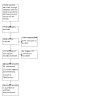
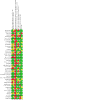
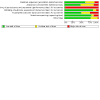
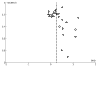

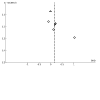


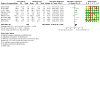



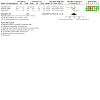

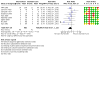
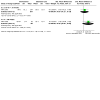

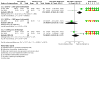
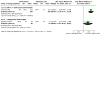

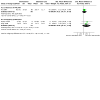
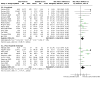

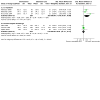
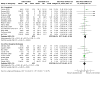



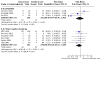

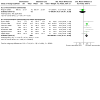
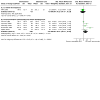


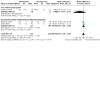

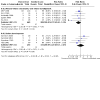
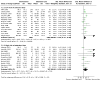
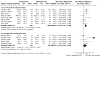
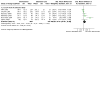
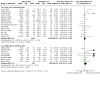

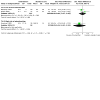
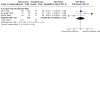
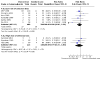
Update of
-
Early developmental intervention programmes provided post hospital discharge to prevent motor and cognitive impairment in preterm infants.Cochrane Database Syst Rev. 2015 Nov 24;2015(11):CD005495. doi: 10.1002/14651858.CD005495.pub4. Cochrane Database Syst Rev. 2015. Update in: Cochrane Database Syst Rev. 2024 Feb 13;2:CD005495. doi: 10.1002/14651858.CD005495.pub5. PMID: 26597166 Free PMC article. Updated.
References
References to studies included in this review
Alberge 2023 {published data only}
Apaydin 2023 {published data only}
APIP 1998 {published data only}
Bao 1999 {published data only}
-
- Bao X, Sun S, Wei S. Early intervention promotes intellectual development of premature infants: a preliminary report. Chinese Medical Journal 1999;112(6):520-3. [PMID: ] - PubMed
Barrera 1986 {published data only}
-
- Barrera ME, Cunningham CE, Rosenbaum PL. Low birth weight and home intervention strategies: preterm infants. Journal of Developmental and Behavioural Pediatrics 1986;7(6):361-6. [PMID: ] - PubMed
-
- Barrera ME, Doucet DA, Kitching KJ. Early home intervention and socio-emotional development of preterm infants. Infant Mental Health Journal 1990;11(2):142-57. [DOI: ]
-
- Barrera ME, Kitching KJ. A 3 year early home intervention follow-up study with low birthweight infants and their parents. Topics in Early Childhood Special Education 1991;10(4):14-28. [DOI: ]
-
- Barrera ME, Rosenbaum PL, Cunningham CE. Early home intervention with low-birth-weight infants and their parents. Child Development 1986;57(1):20-33. - PubMed
Cameron 2005 {published data only}
-
- Cameron EC, Maehle V, Reid J. The effects of an early physical therapy intervention for very preterm, very low birth weight infants: a randomized controlled clinical trial. Pediatric Physical Therapy 2005;17(2):107-19. [PMID: ] - PubMed
Campbell 2012 {published data only}
Castel 2016 {published data only}
-
- Castel S, Creveuil C, Beunard A, Blaizot X, Proia N, Guillois B. Effects of an intervention program on maternal and paternal parenting stress after preterm birth: a randomized trial. Early Human Development 2016;103(12):17-25. - PubMed
Colditz 2019 {published data only}
Dusing 2015 {published data only}
-
- Dusing SC, Brown SE, Van Drew CM, Thacker LR, Hendricks-Munoz KD. Supporting play exploration and early development intervention from NICU to home: a feasibility study. Pediatric Physical Therapy 2015;27(3):267-74. [PMID: ] - PubMed
Dusing 2018 {published data only}
-
- Dusing SC, Tripathi T, Marcinowski EC, Thacker LR, Brown LF, Hendricks-Muñoz K. Supporting play exploration and early developmental intervention versus usual care to enhance development outcomes during the transition from the neonatal intensive care unit to home: a pilot randomized controlled trial. BMC Pediatrics 2018;18(1):46. [PMID: ] - PMC - PubMed
Fan 2021 {published data only}
Field 1980 {published data only}
-
- Field TM, Widmayer SM, Stringer S, Ignatoff E. Teenage, lower-class, black mothers and their preterm infants: an intervention and developmental follow-up. Child Development 1980;51(2):426-36. [PMID: ] - PubMed
Finlayson 2020 {published data only}
-
- Finlayson F, Olsen J, Dusing SC, Guzzetta A, Eeles A, Spittle A. Supporting Play, Exploration, and Early Development Intervention (SPEEDI) for preterm infants: a feasibility randomised controlled trial in an Australian context. Early Human Development 2020;151:105172. [DOI: 10.1016/j.earlhumdev.2020.105172] [PMID: ] - DOI - PubMed
Gianni 2006 {published data only}
-
- Gianní ML, Picciolini O, Ravasi M, Gardon L, Vegni C, Fumagalli M, et al. The effects of an early developmental mother-child intervention program on neurodevelopment outcome in very low birth weight infants: a pilot study. Early Human Development 2006;82(10):691-5. [PMID: ] - PubMed
Goodman 1985 {published data only}
-
- Goodman M, Rothberg AD, Houston-McMillan JE, Cooper PA, Cartwright JD, Velde MA. Effect of early neurodevelopmental therapy in normal and at-risk survivors of neonatal intensive care. Lancet 1985;2(8468):1327-30. [PMID: ] - PubMed
-
- Rothberg AD, Goodman M, Jacklin LA, Cooper PA. Six-year follow-up of early physiotherapy intervention in very low birth weight infants. Pediatrics 1991;88(3):547-52. [PMID: ] - PubMed
I.H.D.P. 1990 {published and unpublished data}
-
- Berlin LJ, Brooks-Gunn J, McCarton C, McCormick MC. The effectiveness of early intervention: examining risk factors and pathways to enhanced development. Preventive Medicine 1998;27(2):238-45. [PMID: ] - PubMed
-
- Blair C, Ramey CT, Hardin JM. Early intervention for low birth weight, premature infants: participation and intellectual development. American Journal of Mental Retardation 1995;99(5):542-54. [PMID: ] - PubMed
-
- Brooks-Gunn J, Klebanov PK, Liaw F, Spiker D. Enhancing the development of low-birthweight, premature infants: changes in cognition and behavior over the first three years. Child Development 1993;64(3):736-53. [PMID: ] - PubMed
-
- Brooks-Gunn J, McCarton CM, Casey PH, McCormick MC, Bauer CR, Bernbaum JC, et al. Early intervention in low-birth-weight premature infants. Results through age 5 years from the Infant Health and Development Program. JAMA 1994;272(16):1257-62. [PMID: ] - PubMed
Johnson 2009 {published data only}
-
- Israel C. The preterm infant parenting study. Midirs Midwifery Digest 2003;13(2):239-41. [CINAHL: 106704771]
-
- Johnson S, Whitelaw A, Glazebrook C, Israel C, Turner R, White IR, et al. Randomized trial of a parenting intervention for very preterm infants: outcome at 2 years. Journal of Pediatrics 2009;155(4):488-94. [PMID: ] - PubMed
Kaaresen 2006 {published data only}
-
- Hauglann L, Handegaard BH, Ulvund SE, Nordhov M, Ronning JA, Kaaresen PI. Cognitive outcome of early intervention in preterms at 7 and 9 years of age: a randomised controlled trial. Archives of Disease in Childhood. Fetal and Neonatal Edition 2014;100(1):F11-6. [PMID: ] - PubMed
-
- Kaaresen PI, Rønning JA, Tunby J, Nordhov SM, Ulvund SE, Dahl LB. A randomized controlled trial of an early intervention program in low birth weight children: outcome at 2 years. Early Human Development 2008;84(3):201-9. [PMID: ] - PubMed
-
- Nordhov SM, Rønning JA, Dahl LB, Ulvund SE, Tunby J, Kaaresen PI. Early intervention improves cognitive outcomes for preterm infants: randomized controlled trial. Pediatrics 2010;126(5):e1088-94. [PMID: ] - PubMed
Kara 2019 {published data only}
Koldewijn 2009 {published data only (unpublished sought but not used)}
-
- Koldewijn K, Wolf MJ, Wassenaer A, Meijssen D, Sonderen L, Baar A, et al. The Infant Behavioral Assessment and Intervention Program for very low birth weight infants at 6 months corrected age. Journal of Pediatrics 2009;154(1):33-8.e2. [PMID: ] - PubMed
-
- Koldewijn K, Wassenaer A, Wolf MJ, Meijssen D, Houtzager B, Beelen A, et al. A neurobehavioral intervention and assessment program in very low birth weight infants: outcome at 24 months. Journal of Pediatrics 2010;156(3):359-65. [PMID: ] - PubMed
-
- Van Hus J, Jeukens-Visser M, Koldewijn K, Holman R, Kok JH, Nollet F, et al. Early intervention leads to long-term developmental improvements in very preterm infants, especially infants with bronchopulmonary dysplasia. Acta Paediatrica Jul 2016;105(7):773-81. [PMID: ] - PubMed
-
- Van Hus JWP, Jeukens-Visser M, Koldewijn, Geldof CJA, Kok JH, Nollet F, et al. Sustained developmental effects of the infant behavioral assessment and intervention program in very low birth weight infants at 5.5 years corrected age. Journal of Pediatrics 2013;162:1112-9. [PMID: ] - PubMed
-
- Verkerk G, Jeukens-Visser M, Koldewijn K, Wassenaer A, Houtzager B, Kok J, et al. Infant behavioral assessment and intervention program in very low birth weight infants improves independency in mobility at preschool age. Journal of Pediatrics 2011;159(6):933-8.e1. [PMID: ] - PubMed
Kyno 2012 {published data only}
-
- Kyno NM, Ravan IH, Lindermann R, Fargeland MW, Smeby N, Torgersen AM. Effect of an early intervention programme on development of moderate and late preterm infants at 36 months: a randomized controlled study. Infant Behaviour and Development 2012;35(4):916-26. [PMID: ] - PubMed
Lekskulchai 2001 {published data only}
-
- Lekskulchai R, Cole J. Effect of a developmental program on motor performance in infants born preterm. Australian Journal of Physiotherapy 2001;47(3):169-76. [PMID: ] - PubMed
Leucona 2017 {published data only}
-
- Leucona E, Jaarsveld A, Raubenheimer J, Heerden R. Sensory integration intervention and the development of the premature infant: a controlled trial. South African Medical Journal 2017;107(11):976-82. [PMID: ] - PubMed
Melnyk 2001 {published data only}
-
- Melnyk BM, Alpert-Gillis L, Feinstein NF, Fairbanks E, Czarniak-Schultz N, Hust D, et al. Improving cognitive development of low-birth-weight premature infants with the COPE program: a pilot study of the benefit of early NICU intervention with mothers. Research in Nursing and Health 2001;24(5):373-89. [PMID: ] - PubMed
Milgrom 2019 {published data only}
Nelson 2001 {published data only}
-
- Nelson NM, White-Traut RC, Vasan U, Silvestri J, Comiskey E, Meleedy-Rey P, et al. One-year outcome of auditory-tactile-visual-vestibular intervention in the neonatal intensive care unit: effects of severe prematurity and central nervous system injury. Journal of Child Neurology 2001;16(7):493-8. [DOI: 10.1177/088307380101600706] [PMID: ] - DOI - PubMed
Nurcombe 1984 {published data only}
-
- Achenbach TM, Howell CT, Aoki MF, Rauh VA. Nine-year outcome of the Vermont Intervention Program for low birth weight infants. Pediatrics 1993;91(1):45-55. [PMID: ] - PubMed
-
- Achenbach TM, Phares V, Howell CT, Rauh VA, Nurcombe B. Seven-year outcome of the Vermont Intervention Program for Low-Birthweight Infants. Child Development 1990;61(6):1672-81. [PMID: ] - PubMed
-
- Nurcombe B, Howell DC, Rauh V, Teti DM, Ruoff P, Brennan J. An intervention program for mothers of low-birthweight babies: preliminary results. Journal of the American Academy of Child Psychiatry 1984;23(3):319-25. [PMID: ] - PubMed
-
- Rauh VA, Achenbach TM, Nurcombe BH, Howell CT, Teti DM. Minimizing adverse effects of low birthweight: four-year results of an early intervention program. Child Development 1988;59(3):544-53. [PMID: ] - PubMed
-
- Rauh VA, Nurcombe B, Achenbach T, Howell C. The Mother-Infant Transaction Program: the content and implications of an intervention for the mothers of low-birthweight infants. Clinics in Perinatology 1990;17(1):31-45. [PMID: ] - PubMed
Ochandorena‐Acha 2022 {published data only}
-
- NCT03313427. Early physical therapy intervention in preterm infants [Early physical therapy intervention in preterm infants during the stay in the neonatal intensive care unit and at home to promote motor development]. clinicaltrials.gov/study/NCT03313427 (first received 9 October 2017). [CENTRAL: CN-01564940]
-
- Ochandorena-Acha M, Terradas-Monllor M, López Sala L, Cazorla Sánchez ME, Fornaguera Marti M, Muñoz Pérez I, et al. Early physiotherapy intervention program for preterm infants and parents: a randomized, single-blind clinical trial. Children 2022;9(6):895. [DOI: 10.3390/children9060895] [PMID: ] - DOI - PMC - PubMed
Ohgi 2004 {published and unpublished data}
-
- Ohgi S, Fukuda M, Akiyama T, Gima H. Effect of an early intervention programme on low birthweight infants with cerebral injuries. Journal of Paediatrics and Child Health 2004;40(12):689-95. [PMID: ] - PubMed
Pascoali Rodovanski 2021 {published data only}
-
- Pascoali Rodovanski G, Bez Reus BA, Cechinel Damiani AV, Franco Mattos K, Moreira RS, Neves Dos Santos A. Home-based early stimulation program targeting visual and motor functions for preterm infants with delayed tracking: feasibility of a randomized clinical trial. Research in Developmental Disabilities 2021;116:104037. [DOI: 10.1016/j.ridd.2021.104037] [PMID: ] - DOI - PubMed
Resnick 1988 {published data only}
-
- Resnick MB, Armstrong S, Carter RL. Developmental intervention program for high-risk premature infants: effects on development and parent infant interactions. Journal of Developmental and Behavioral Pediatrics 1988;9(2):73-8. [PMID: ] - PubMed
Rice 1979 {published data only}
-
- Rice RD. The effects of the Rice infants sensorimotor stimulation treatment on the development of high-risk infants. Birth Defects Original Article Series 1979;15(7):7-26. [PMID: ] - PubMed
Sajaniemi 2001 {published data only}
-
- Sajaniemi N, Makela J, Salokorpi T, Wendt L, Hamalainen T, Hakamies-Blomqvist L. Cognitive performance and attachment patterns at four years of age in extremely low birth weight infants after early intervention. European Child & Adolescent Psychiatry 2001;10(2):122-9. [PMID: ] - PubMed
-
- Salokorpi T, Rauito T, Kajantie E, Wednt L. Is early occupational therapy in extremely preterm infants of benefit in the long run? Pediatric Rehabilitation 2002;5(2):91-8. [PMID: ] - PubMed
-
- Salokorpi T, Sajaniemi N, Rajantie I, Hallback H, Hamalainen T, Rita H, et al. Neurodevelopment until the adjusted age of 2 years in extremely low birth weight infants after early intervention - a case-control study. Pediatric Rehabilitation 1998;2(4):157-63. [PMID: ] - PubMed
Sgandurra 2017 {published data only}
Shafaroodi 2022 {published data only}
-
- Shafaroodi N, Askary Kachoosangy R, Heidarzadeh M, Qorbani M, Shojaei S H, Beheshti SZ. Promoting developmental outcomes of premature infants by creating opportunities for parent empowerment (COPE). Iranian Rehabilitation Journal 2022;20(1):11-7. [CINAHL: 161431021] [DOI: 10.32598/irj.20.1.125.4] - DOI
Spittle 2009 {published data only}
-
- Spencer-Smith MM, Spittle AJ, Doyle LW, Lee KJ, Lorefice L, Suetin A, et al. Long-term benefits of home-based preventive care for preterm infants: a randomized trial. Pediatrics 2012;130(6):1094-101. [PMID: ] - PubMed
-
- Spittle AJ, Anderson PJ, Lee KJ, Ferretti C, Eeles A, Orton J, et al. Preventive care at home for very preterm infants improves infant and caregiver outcomes at 2 years. Pediatrics 2010;126(1):e171-8. [PMID: ] - PubMed
-
- Spittle AJ, Barton S, Treyvaud K, Molloy CS, Doyle LW, Anderson PJ. School-age outcomes of early intervention for preterm infants and their parents: a randomized trial. Pediatrics 2016;138(6):e20161363. [PMID: ] - PubMed
-
- Spittle AJ, Treyvaud K, Lee KJ, Anderson PJ, Doyle LW. The role of social risk in an early preventative care programme for infants born very preterm: a randomized controlled trial. Developmental Medicine and Child Neurology 2018;60(1):54-62. [PMID: ] - PubMed
Teti 2009 {published data only}
-
- Teti DM, Black M, Viscardi R, Glass P, O'Connell, Baker L, et al. Intervention with African American premature infants: four-month results of an early intervention program. Journal of Early Intervention 2009;31(2):146-66. [CINAHL: 105501262] [DOI: 10.1177/1053815109331864] - DOI
Treyvaud 2022 {published data only}
Wu 2014 {published data only}
-
- Wu YC, Leng CH, Hsieh WS, Hsu CH, Chen WJ, Gau SS, et al. A randomized controlled trial of clinic-based and home-based interventions in comparison with usual care for preterm infants: effects and mediators. Research in Developmental Disabilities 2014;35(10):2384-93. [PMID: ] - PubMed
Yigit 2002 {published data only}
-
- Yigit S, Kerem M, Livanelioglu A, Oran O, Erdem G, Mutlu A, et al. Early physiotherapy intervention in premature infants. Turkish Journal of Pediatrics 2002;44(3):224-9. [PMID: ] - PubMed
Youn 2021 {published data only}
Zhang 2023 {published data only}
Ziegler 2021 {published data only}
-
- Ziegler SA, Rhein S, Meichtry M, Wirz A, Hielkema T, Hadders-Algra M, Swiss Neonatal Network and Follow-Up Group. The Coping with and Caring for Infants with Special Needs intervention was associated with improved motor development in preterm infants. Acta Paediatrica 2021;110(4):1189-1200. [PMID: ] - PMC - PubMed
References to studies excluded from this review
Adiguzel 2023 {published data only}
-
- Adiguzel H, Sarikabadayi YU, Elbasan B. Investigation of the effectiveness of family collaborative physiotherapy programs applied to high-risk infants. Physiotherapy Theory and Practice 2023;39(9):1871-87. [PMID: ] - PubMed
Badr 2006 {published data only}
Barbu‐Roth 2022 {published data only}
-
- Barbu-Roth M, Dumuids MV, Forma V, Anderson DI, Provasi J, Biran V. Effects of early crawling training on the motor development of very premature infants. Developmental Medicine and Child Neurology 2022;64(S3):37.
Beckwith 1988 {published data only}
-
- Beckwith L. Intervention with disadvantaged parents of sick preterm infants. Psychiatry 1988;51(3):242-7. - PubMed
Beeghly 1995 {published data only}
-
- Beeghly M, Brazelton TB, Flannery KA, Nugent JK, Barrett DE, Tronick EZ. Specificity of preventative pediatric intervention effects in early infancy. Journal Developmental and Behavioural Pediatrics 1995;16(3):158-66. - PubMed
Benzies 2017 {published data only}
Britain 1995 {published data only}
-
- Britain LA, Holmes GE, Hassanein RS. High-risk children referred to an early-intervention developmental program. Clinical Pediatrics 1995;34(12):635-41. - PubMed
Chen 2001 {published data only}
-
- Chen D, Zhang J, Chen Y. Early intervention on intelligent development of premature infant. Chinese Mental Health Journal 2001;15:55-7.
Culp 1989 {published data only}
-
- Culp RE, Culp AM, Harmon RJ. A tool for educating parents about their premature infants. Birth 1989;16(1):23-6. - PubMed
Dumuids‐Vernet 2023 {published data only}
-
- Dumuids-Vernet M V, Forma V, Provasi J, Anderson DI, Hinnekens E, Soyez E, et al. Stimulating the motor development of very premature infants: effects of early crawling training on a mini-skateboard. Frontiers in Pediatrics 2023;11:1198016. [DOI: 10.3389/fped.2023.1198016] [PMID: ] - DOI - PMC - PubMed
Fjortoft 2017 {published data only}
-
- Fjørtoft T, Ustad T, Follestad T, Kaaresen PI, Øberg GK. Does a parent-administrated early motor intervention influence general movements and movement character at 3 months of age in infants born preterm? Early Human Development 2017;112:20-24. - PubMed
Flierman 2016 {published data only}
-
- Flierman M, Koldewijn K, Meijssen D, Wassenaer-Leemhuis A, Aarnoudse-Moens C, Schie P, et al. Feasibility of a preventive parenting intervention for very preterm children at 18 months corrected age: a randomized pilot trial.. The Journal of Pediatrics 2016;176:79-85. - PubMed
Fucile 2012 {published data only}
Ghetti 2019 {published data only}
Girolami 1994 {published data only}
-
- Girolami JL, Campbell SK. Efficacy of a neuro-developmental treatment program to improve motor control in infants born prematurely. Pediatric Physical Therapy 1994;6:175-84.
Guimarães 2015 {published data only}
-
- Guimarães EL, Tudella E. Immediate effect of training at the onset of reaching in preterm infants:randomized clinical trial. Journal of Motor Behavior 2015;47(6):535-549. - PubMed
Guzzetta 2011 {published data only}
-
- Guzzetta A, D'Acunto MG, Carotenuto M, Berardi N, Bancale A, Biagioni E, et al. The effects of preterm infant massage on brain electrical activity. Developmental Medicine and Child Neurology 2011;53(Suppl 4):46-51. - PubMed
Hane 2015 {published data only}
-
- Hane AA, Myers MM, Hofer, MA, Ludwig RJ, Halperin MS, Austin J, et al. Family nurture intervention improves the quality of maternal caregiving in the neonatal intensive care unit: evidence from a randomized controlled trial. Journal of Developmental and Behavioral Pediatrics. 2015;36(3):188-96. - PubMed
Hielkema 2010 {published data only}
-
- Hielkema T, Blauw-Hospers CH, Dirks T, Drijver-Messelink M, Bos AF, Hadders-Algra M. Does physiotherapeutic intervention affect motor outcome in high-risk infants? An approach combining a randomized controlled trial and process evaluation. Developmental Medicine and Child Neurology 2011;53(3):e8-15. - PubMed
-
- Hielkema T, Hamer EG, Boxum AG, La Bastide-Van Gemert S, Dirks T, Reinders-Messelink HA, et al. LEARN2MOVE 0-2 years, a randomized early intervention trial for infants at very high risk of cerebral palsy: neuromotor, cognitive, and behavioral outcome. Disability Rehabilitation 2020;42(26):3752-3761. - PubMed
-
- Hielkema T, Hamer EG, Boxum AG, La Bastide-Van Gemert S, Maathuis CGB, Reinders-Messelink HA, et al. LEARN 2 MOVE 0-2 years: Outcome of a randomized controlled trial on early intervention in infants at very high risk for cerebral palsy including process analysis. Developmental Medicine and Child Neurology 2017;59(S2):38.
Jeba 2022 {published data only}
-
- Jeba A, Suganthirababu P, Sosale S, Alagesan J, Srinivasan V, Sebastian N. Neurodevelopmental outcome of very preterm and moderate to late preterm babies at the corrected age of first year. European journal of molecular and clinical medicine 2022;9(8):280-290.
Kaaresen 2006b {published data only}
-
- Kaaresen PI, Rønning JA, Ulvund SE, Dahl LB. A randomized, controlled trial of the effectiveness of an early-intervention program in reducing parenting stress after preterm birth. Pediatrics 2006;118(1):e9-19. - PubMed
-
- Olafsen KS, Rønning JA, Handegård BH, Ulvund SE, Dahl LB, Kaaresen PI. Regulatory competence and social communication in term and preterm infants at 12 months corrected age. Results from a randomized controlled trial. Infant Behavior and Development 2012;35(1):140-9. [PMID: ] - PubMed
Kachoosangy 2020 {published data only}
Kanda 2004 {published data only}
-
- Kanda T, Pidcock FS, Hayakawa K, Yamori Y, Shikata Y. Motor outcome differences between two groups of children with spastic diplegia who received different intensities of early onset physiotherapy followed for 5 years. Brain and Development 2004;26(2):118-26. - PubMed
Kang 1995 {published data only}
-
- Kang R, Barnard K, Hammond M, Oshio S, Spencer C, Thibodeaux B, et al. Preterm infant follow-up project: a multi-site field experiment of hospital and home intervention programs for mothers and preterm infants. Public Health Nursing 1995;12(3):171-80. - PubMed
Kendrick 2000 {published data only}
Kiechl‐Kohlendoefer 2015 {published data only}
-
- Kiechl-Kohlendorfer U, Merkle U, Deufert D, Neubauer V, Peglow UP, Griesmaier E. Effect of developmental care for very premature infants on neurodevelopmental outcome at 2 years of age. Infant Behavioral Development 2015;39:166-72. - PubMed
Kleberg 2000 {published data only}
-
- Kleberg A, Westrup B, Stjernqvist K. Developmental outcome, child behavior and mother-child interaction at 3 years of age following Newborn Individualized Developmental Care and Intervention Program (NIDCAP) intervention. Early Human Development 2000;60(2):123-35. - PubMed
Kleberg 2002 {published data only}
-
- Kleberg A, Westrup B, Stjernqvist K, Lagercrantz H. Indications of improved cognitive development at one year of age among infants born very prematurely who received care based on the Newborn Individualized Developmental Care and Assessment Program (NIDCAP). Early Human Development 2002;68(2):83-91. - PubMed
Lai 2016 {published data only}
Landsem 2014 {published data only}
Leyener 2021 {published data only}
-
- Leyener. Promotion of motor development and movement quality in preterm infants through the early application of "Movement Imitation Therapy for Preterm Babies (MIT-PB)" in the first three months of life. International Clinical Trials Registry Platform 2021. [ICTRP MAIN ID DRKS00022899: DRKS00022899]
Liu 2015 {published data only}
-
- Liu FC, Hsieh WS, Hsu CH, Lin YJ, Chen WJ, Lin CH, et al. Effectiveness of a family-centered intervention program in very low birth weight preterm infants at term age: a randomized controlled trial. Physiotherapy 2015;101:401-403.
Ma 2015 {published data only}
-
- Ma L, Yang B, Meng L, Wang B, Zheng C, Cao A. Effect of early intervention on premature infants' general movements.. Brain Development 2015;37(4):387-393. - PubMed
Matsuishi 1998 {published data only}
-
- Matsuishi T, Ishibashi S, Kamiya Y, Shoju J, Yamashita Y, Fukuda S, et al. Early intervention for very-low-birth-weight infants. Brain and Development 1998;20(1):18-21. - PubMed
McCarton 2006 {published data only}
-
- McCarton C. Behavioral outcomes in low birth weight infants. Pediatrics 1998;102(5 Supp E):1293-7. - PubMed
Meijssen 2010 {published data only}
-
- Meijssen D, Wolf MJ, Koldewijn K, Houtzager BA, Wassenaer A, Tronick E, et al. The effect of the Infant Behavioral Assessment and Intervention Program on mother-infant interaction after very preterm birth. Journal of Child Psychology and Psychiatry and Allied Disciplines 2010;51(11):1287-1295. - PubMed
-
- Meijssen D, Wolf MJ, Bakel H, Koldewijn K, Kok J, Baar A. Maternal attachment representations after very preterm birth and the effect of early intervention. Infant Behavior and Development 2011;34(1):72-80. - PubMed
-
- Meijssen DE, Wolf MJ, Koldewijn K, Wassenaer AG, Kok JH, Baar AL. Parenting stress in mothers after very preterm birth and the effect of the Infant Behavioural Assessment and Intervention Program. Child: Care, Health and Development 2011;37(2):195-202. - PubMed
Nair 2009 {published data only}
-
- Nair MK, Philip E, Jeyaseelan L, George B, Mathews S, Padma K. Effect of Child Development Centre model early stimulation among at risk babies: a randomized controlled trial. Indian Pediatrics 2009;46(Suppl):S20-6. - PubMed
Nascimento 2019 {published data only}
-
- Nascimento AL, Toledo AM, Merey LF, Tudella E, Soares-Marangoni DA. Brief reaching training with "sticky mittens" in preterm infants: Randomized controlled trial. Human Movement Science 2019;63:138-47. - PubMed
Neel 2019 {published data only}
Newnham 2009 {published data only}
-
- Newnham CA, Milgrom J, Skouteris H. Effectiveness of a modified Mother-Infant Transaction Program on outcomes for preterm infants from 3 to 24 months of age. Infant Behaviour and Development 2009;32(1):17-26. - PubMed
Oberg 2012 {published data only}
-
- Oberg GK, Campbell SK, Girolami GL, Ustad T, Jørgensen L, Kaaresen PI. Study protocol: an early intervention program to improve motor outcome in preterm infants: a randomized controlled trial and a qualitative study of physiotherapy performance and parental experiences. BMC Pediatrics 2012;12:15. [PMID: ] - PMC - PubMed
Pelc 2017 {published data only}
-
- Pelc K, Daniel I, Wenderickx B, Dan B, Primebrain group. Multicentre prospective randomised single-blind controlled study protocol of the effect of an additional parent-administered sensorimotor stimulation on neurological development of preterm infants: Primebrain. BMJ Open 2017;7(12):e018084. [PMID: 10.1136/bmjopen-2017-018084] - DOI - PMC - PubMed
Piper 1986 {published data only}
-
- Piper MC, Kunos VI, Willis DM, Mazer BL, Ramsay M, Silver KM. Early physical therapy effects on the high-risk infant: a randomized controlled trial. Pediatrics 1986;78(2):216-24. - PubMed
Romera‐Galisteo 2019 {published data only}
Ross 1984 {published data only}
-
- Ross GS. Home intervention for premature infants of low-income families. American Journal of Orthopsychiatry 1984;54(2):263-70. - PubMed
Scott 1989 {published data only}
-
- Scott DT, Spiker D. Research on the sequelae of prematurity: early learning, early interventions and later outcomes. Seminars in Perinatology 1989;13(6):495-505. - PubMed
Sgandurra 2014 {published data only}
-
- Sgandurra G, Bartalena L, Cecchi F, Cioni G, Giampietri M, Greisen G et al. A pilot study on early home-based intervention through an intelligent baby gym (CareToy) in preterm infants. Research in Developmental Disabilities 2016;53-54:32-42. - PubMed
Sgandurra 2018 {published data only}
Silveira 2018 {published data only}
Slater 1987 {published data only}
-
- Slater MA, Naqvi M, Andrew L, Haynes K. Neurodevelopment of monitored versus non-monitored very low birth weight infants: the importance of family influences. Journal of Developmental and Behavioral Pediatrics 1987;8(5):278-85. - PubMed
Van Hus 2016 {published data only}
-
- Van Hus J, Jeukens-Visser M, Koldewijn K, Holman R, Kok JH, Nollet F, et al. Early intervention leads to long-term developmental improvements in very preterm infants, especially infants with bronchopulmonary dysplasia. Acta Paediatrica 2016;105(7):773-781. - PubMed
Walker 2010 {published data only}
-
- Walker SP, Chang SM, Younger N, Grantham-McGregor SM. The effect of psychosocial stimulation on cognition and behaviour at 6 years in a cohort of term, low-birthweight Jamaican children. Developmental Medicine and Child Neurology 2010;52(7):e148-54. - PubMed
Wasik 1990 {published data only}
-
- Wasik BH, Ramey CT, Bryant DM, Sparling JM. A longitudinal study of two early intervention strategies: Project CARE. Child Development 1990;61(6):1682-96. - PubMed
Weerasinghe 2023 {published data only}
-
- Weerasinghe Y, Sumanasena SP. Family- centered, early intervention package for infants at high risk for Neuro- Developmental Disabilities to promote language development during early infancy; a randomized controlled trial. International Clinical Trials Registry Platform 2023. [ICTRP ID: SLCTR/2022/001]
Welch 2015 {published data only}
-
- Welch MG, Firestein MR, Austin J, Hane AA, Stark RI, Hofer MA, et al. Family Nurture Intervention in the neonatal intensive care unit improves social-relatedness, attention, and neurodevelopment of preterm infants at 18 months in a randomized controlled trial. Journal of Child Psychology and Psychiatry 2015;56(11):1202-1211. - PubMed
Welch 2016 {published data only}
-
- Welch MG, Halperin MS, Austin J, Stark RI, Hofer MA, Hane AA, et al. Depression and anxiety symptoms of mothers of preterm infants are decreased at 4 months corrected age with Family Nurture Intervention in the NICU.. Archives Womens Mental Health 2016;19(1):51-61. - PubMed
Widmayer 1981 {published data only}
-
- Widmayer SM, Field TM. Effects of Brazelton demonstrations for mothers on the development of preterm infants. Pediatrics 1981;67(5):711-4. - PubMed
Williams 2015 {published data only}
-
- Williams JL, Corbetta D, Guan Y. Learning to reach with "sticky" or "non-sticky" mittens: a tale of developmental trajectories. Infant Behavior and Development 2015;38:82-96. - PubMed
Winter 2018 {published data only}
-
- Winter L, Sanders MR, N Boyd R, Pritchard M, Gray PH, Whittingham K, et al. Predicting attendance of a preventive parenting intervention for very preterm infants. Infant Mental Health Journal 2018;39(6):699-706. - PubMed
Wu 2016 {published data only}
-
- Wu YC, Hsieh WS, Hsu CH, Chang JH, Chou HC, Hsu HC, et al. Intervention effects on emotion regulation in preterm infants with very low birth weight: a randomized controlled trial. Research in Developmental Disabilities 2016;48:1-12. - PubMed
Yu 2017 {published data only}
-
- NCT01807533. A family-centered intervention program for preterm infants: effects and their biosocial pathways. clinicaltrials.gov/study/NCT01807533 (first received 29 January 2013). [CENTRAL: CN-01540934]
-
- Yu YT, Hsieh WS, Hsu CH, Lin YJ, Lin CH, Hsieh S, et al. Family-centered care improved neonatal medical and neurobehavioral outcomes in preterm infants: randomized controlled trial. Physical Therapy 2017;97(12):1158-1168. - PubMed
Zanelli 2019 {published data only}
-
- Zanelli S. NEO Rehab Program for Premature Infants at Risk for Cerebral Palsy. ClinicalTrials.gov 2019. [CLINICALTRIALS.GOV ID: NCT04330859]
References to ongoing studies
ACTRN12621000364875 {published data only}
-
- ACTRN12621000364875. The effect of telehealth for early intervention on neurodevelopmental outcomes of infants born very preterm and their parent’s well-being: a randomised controlled trial (TEDI-Prem) [TEDI-prem: telehealth for early developmental Intervention in babies born very preterm]. trialsearch.who.int/Trial2.aspx?TrialID=ACTRN12621000364875 (first received 31 March 2021). [CENTRAL: CN-02256202]
Baraldi 2020 {published data only}
-
- Baraldi E, Allodi Mara W, Lowing K, Smedler AC, Westrup B, Aden U. Stockholm preterm interaction-based intervention (SPIBI) - study protocol for an RCT of a 12-month parallel-group post-discharge program for extremely preterm infants and their parents. BMC Pediatrics 2020;20(1):49. [DOI: 10.1186/s12887-020-1934-4.] [PMID: ] - DOI - PMC - PubMed
CTRI/2022/03/040781 {published data only}
-
- CTRI/2022/03/040781. A randomised controlled trial to assess the effectiveness of nurse led developmental intervention packages on neurodevelopmental outcome of preterm babies in AIIMS, Jodhpur [Effect of nurse led developmental intervention packages on neurodevelopmental outcome of preterm babies in AIIMS, Jodhpur]. trialsearch.who.int/Trial2.aspx?TrialID=CTRI/2022/03/040781 (first received 3 March 2022). [CENTRAL: CN-02408965]
Dusing 2020 {published data only}
-
- Dusing SC, Burnsed JC, Brown SE, Harper AD, Hendricks-Munoz KD, Stevenson RD, et al. Efficacy of supporting play exploration and early development intervention in the first months of life for infants born very preterm: 3-arm randomized clinical trial protocol. Physical Therapy 2020;100(8):1343-52. [PMID: 10.1093/ptj/pzaa077] [PMID: ] - DOI - PMC - PubMed
IRCT20220725055554N1 {published data only}
-
- IRCT20220725055554N1. The effect of early interventions with telemedicine on the development of premature babies and the self-efficacy of their parents in the corona pandemic [Tele-education on premature's parents]. trialsearch.who.int/Trial2.aspx?TrialID=IRCT20220725055554N1 (first received 27 December 2022). [CENTRAL: CN-02521236] [ICTRP MAIN ID: IRCT20220725055554N1]
Lucas 2023 {published data only}
-
- Lucas B, Bowen J, Morgan C, Novak I, Badawi N, Elliott E, et al. The best start trial: ultra-early parent administered physiotherapy for infants at high risk of cerebral palsy or motor delay – a randomised controlled pilot trial. Supplement: Perinatal Society of Australia and New Zealand (PSANZ) 2023 Annual Congress “Laneways to Better Perinatal Outcomes”, 2023. March 5–8, Melbourne, Victoria, Australia. Journal of Paediatrics and Child Health 2023;59(S1):32. [DOI: 10.1111/jpc.16356] - DOI
NCT01281358 {published data only}
-
- NCT01281358. Helping our premature infants on to better motor skills (HOP-ON) [Development and evaluation of a parenting intervention to promote development in infants born very premature]. clinicaltrials.gov/study/NCT01281358 (first received 5 January 2011). [CENTRAL: CN-01502897]
NCT02983513 {published data only}
-
- Early intervention in preterm infants: short and long term developmental outcome after a parental training program. clinicaltrials.gov/study/NCT02983513 (first received 16 November 2016).
NCT03518736 {published data only}
-
- Butera CD, Rhee C, Kelly CE, Dhollander T, Thompson DK, Wisnowski J, et al. Effect of a NICU to home physical therapy intervention on white matter trajectories, motor skills, and problem-solving skills of infants born very preterm: a case series. Journal of Personalized Medicine 2022;12(12):2024. [DOI: 10.3390/jpm12122024] - DOI - PMC - PubMed
-
- NCT03518736. Does timing matter? Efficacy of parent provided, therapist supported, motor and cognitive intervention for infants born very preterm in the first months of life [Does timing matter? Supporting play, exploration, and early developmental intervention]. clinicaltrials.gov/study/NCT03518736 (first received 25 April 2018). [CENTRAL: CN-01574217]
NCT03668626 {published data only}
-
- NCT03668626. Family-centered intervention for preterm children: effects at school age and biosocial mediators. clinicaltrials.gov/study/NCT03668626 (first received 28 August 2018). [CENTRAL: CN-01663212]
NCT03714633 {published data only}
-
- NCT03714633. Stockholm preterm interaction-based intervention (SPIBI). clinicaltrials.gov/study/NCT03714633 (first received 26 September 2018). [CENTRAL: CN-02087209]
NCT04685356 {published data only}
-
- NCT04685356. Effect of the IBAIP in preterm infants neurodevelopment (IBAIP) [Effect of the infant behavioral assessment and intervention program (IBAIP) in preterm infants on neurodevelopment at 2 years corrected age]. clinicaltrials.gov/study/NCT04685356 (first received 22 December 2020). [PMID: ]
NCT05261503 {published data only}
-
- NCT05261503. Investigation of the Effectiveness of Environmental Enrichment-Based Intervention in Preterm Infants. clinicaltrials.gov/study/NCT05261503 (first received 20 February 2022). [CENTRAL: CN-02382065]
NCT05334550 {published data only}
-
- NCT05334550. Effectiveness of home based early intervention of extremely premature infant by parent. clinicaltrials.gov/study/NCT05334550 (first received 2 March 2022). [CENTRAL: CN-02391243]
NCT05565287 {published data only}
-
- NCT05565287. Neonatal neurobehavioral and motor behavior in ultra early physical therapy intervention [Combining neonatal neurobehavioral (Brazelton) and motor behavior (Prechtl) in the assessment and ultra early physical therapy intervention of premature infants]. clinicaltrials.gov/study/NCT05565287 (first received 29 September 2022). [CENTRAL: CN-02475147]
NCT05568264 {published data only}
-
- NCT05568264. Effects of a physical therapy intervention on motor delay in infants admitted to a neonatal intensive care unit [Early detection and therapeutic improvement of motor delay in high risk Infants: a randomized, controlled trial]. clinicaltrials.gov/study/NCT05568264 (first received 27 September 2022). [CENTRAL: CN-02467589]
Sandoval‐Cuellar 2022 {published data only}
-
- Sandoval-Cuellar C, Castellanos-Garrido AL, Ospina Romero AM, Boude Figueredo ÓR, Serrano-Gómez ME, Fuya Caro CA, et al. Motor development in premature infants: study protocol for an interdisciplinary hospital-home intervention. Pediatrics and Neonatology 2022;64(5):577-84. [DOI: 10.1016/j.pedneo.2022.12.015] [PMID: ] - DOI - PubMed
Additional references
Als 1997
-
- Als H, Gilkerson L. The role of relationship-based developmentally supportive newborn intensive care in strengthening outcome of preterm infants. Seminars in Perinatology 1997;21(3):178-89. - PubMed
Anderson 2003
-
- Anderson P, Doyle L, The Victorian Infant Collaborative Study Group. Neurobehavioral outcomes of school-age children born extremely low birth weight or very preterm in the 1990s. JAMA 2003;289(24):3264-72. - PubMed
Bayley 1969
-
- Bayley N. Bayley Scales of Infant Development. New York: The Psychological Corporation, 1969.
Bayley 1993
-
- Bayley N. The Bayley Scales of Infant Development. 2nd edition. New York: The Psychological Corporation, 1993.
Bayley 2005
-
- Bayley N. Bayley Scales of Infant and Toddler Development. 3rd edition. San Antonio, TX: Harcourt Assessment, 2005.
Becker 1999
-
- Becker P, Grunwald PC, Brazy JE. Motor organization in very low birth weight infants during caregiving: effects of a developmental intervention. Developmental and Behavioral Pediatrics 1999;20(5):344-54. - PubMed
Berger 1998
-
- Berger S, Holt-Turner I, Cupoli JM, Mass M, Hageman JR. Caring for the graduate from the neonatal intensive care unit. At home, in the office, and in the community. Pediatric Clinics of North America 1998;45(3):701-12. - PubMed
Bhutta 2002
-
- Bhutta AT, Cleves MA, Casey PH, Craddock MM, Anand KJ. Cognitive and behavioral outcomes of school-aged children who were born preterm: a meta-analysis. JAMA 2002;288(6):728-37. - PubMed
Blauw‐Hospers 2005
-
- Blauw-Hospers C, Hadders-Algra M. A systematic review of the effects of early intervention on motor development. Developmental Medicine and Child Neurology 2005;47(6):421-32. - PubMed
Botting 1998
-
- Botting N, Powls A, Cooke RW, Marlow N. Cognitive and educational outcome of very-low-birthweight children in early adolescence. Developmental Medicine and Child Neurology 1998;40(10):652-60. - PubMed
Brown 2001
-
- Brown GT, Burns SA. The efficacy of neurodevelopmental treatment in paediatrics: a systematic review. British Journal of Occupational Therapy 2001;64(5):235-44.
Bruininks 1978
-
- Bruininks RH. Bruininks-Oseretsky Test of Motor Proficiency Examiner's Manual. Circle Pines: American Guidance Service, 1978.
Campbell 1995
-
- Campbell SK, Kolobe TH, Osten ET, Lenke M, Girolami GL. Construct validity of the test of infant motor performance. Physical Therapy 1995;75(7):585-96. - PubMed
Cheong 2020
-
- Cheong JLY, Burnett, AC, Treyvaud K, Spittle AJ. Early environment and long-term outcomes of preterm infants [Early environment and long-term outcomes of preterm infants]. Journal of Neural Transmission 2021;127(1):1-8. - PubMed
Cheong 2021
Doyle 2004
-
- Doyle LW, The Victorian Infant Collaborative Study Group. Evaluation of neonatal intensive care for extremely low birthweight infants in Victoria over two decades: I. Effectiveness. Pediatrics 2004;113(3 Pt 1):505-9. - PubMed
Doyle 2021
-
- Doyle LW, Spittle AJ, Anderson PJ, Cheong JLY. School-aged neurodevelopmental outcomes for children born extremely preterm. Archives of Disease in Childhood 2021;106:834-8. - PubMed
Egger 1997
Elliot 1996
-
- Elliot C, Smith P, McCullock K. British Abilities Scales. London: Nelson Publishing Co Ltd, 1996.
Elliot 2007
-
- Elliot C. Differential Ability Scale-II. San Antonio, TX: Harcourt Assessment, 2007.
Folio 2000
-
- Folio MR, Fewell RR. Peabody Developmental Motor Scales. 2nd edition. Austin: Pro-Education Incorporated, 2000.
GRADEpro GDT [Computer program]
-
- GRADEpro GDT. Version accessed January 2022. Hamilton (ON): McMaster University (developed by Evidence Prime), 2022. Available at gradepro.org.
Griffiths 1954
-
- Griffiths R. The abilities of babies: a study of mental measurement. London: University of London Press, 1954.
Griffiths 1970
-
- Griffiths R. The abilities of young children: a comprehensive system of mental measurement for the first eight years. London: Child Development Research Center, 1970.
Hack 2002
-
- Hack M, Flannery DJ, Schluchter M, Cartar L, Borawski E, Klein N. Outcomes in young adults for very-low-birth-weight infants. New England Journal of Medicine 2002;346(3):149-57. - PubMed
Hadders‐Algra 2001
Henderson 1992
-
- Henderson SE, Sugden DA. Movement Assessment Battery for Children Checklist. San Antonio, TX: The Psychological Corporation, 1992.
Henderson 2007
-
- Henderson SE, Sugden DA, Barnett AL. Movement assessment battery for children. Second edition. London: The Psychological Corporation, 2007.
Higgins 2011
-
- Higgins JP, Green S (editors). Cochrane Handbook for Systematic Reviews of Interventions. Version 5.1.0 (updated March 2011). The Cochrane Collaboration, 2011. Available from handbook.cochrane.org.
Higgins 2020
-
- Higgins JP, Thomas J, Chandler J, Cumpston M, Li T, Page MJ, et al, editor(s). Cochrane Handbook for Systematic Reviews of Interventions Version 6.1 (updated September 2020). Available fromwww.training.cochrane.org/handbook.ICCROP, 2020.
Hogan 2000
-
- Hogan DP, Park JM. Family factors and social support in the developmental outcomes of very-low birth weight children. Clinics in Perinatology 2000;27(2):433-59. - PubMed
Horwood 1998
Hoy 1992
-
- Hoy EA, Sykes DH, Bill JM, Halliday HL, McClure BG, Reid MM. The social competence of very-low-birth weight children: teacher, peer and self-perceptions. Journal of Abnormal Child Psychology 1992;20(2):123-50. - PubMed
Jacobs 2002
-
- Jacobs SE, Sokol J, Ohlsson A. The Newborn Individualized Developmental Care and Assessment Program is not supported by meta-analyses of the data. Journal of Pediatrics 2002;140(6):699-706. - PubMed
Josse 1997
-
- Josse D. Echelle de développement psychomoteur de la première enfance. (Brunet-Lezine Revised: Psychomotor Development Scale of the First Childhood). Etablissements d'applications psychotechniques, Paris 1997.
Kaufman 1983
-
- Kaufman A, Kaufman NL. Kaufman Assessment Battery for Children. Circle Pines: American Guidance Service, 1983.
Khurana 2020
Laucht 1997
-
- Laucht M, Esser G, Schmidt MH. Developmental outcomes of infants born with biological and psychosocial risks. Journal Child Psychology and Psychiatry 1997;38(7):843-53. - PubMed
Liberati 2009
Majnemer 1998
-
- Majnemer A. Benefits of early intervention for children with developmental disabilities. Seminars in Pediatric Neurology 1998;5(1):62-9. [PMID: ] - PubMed
Marshall 2018
McCarthy 1972
-
- McCarthy D. Manual for McCarthy's Scales of Children's Abilities. New York: Psychological Corporation, 1972.
McManus 2012
-
- McManus BM, Rosenberge SA. Does the persistence of developmental delay predict receipt of early intervention services. Developmental Pediatrics and Early Intervention 2012;12(6):546-50. [PMID: ] - PubMed
Morgan 2013
-
- Morgan C, Novak I, Badawi N. Enriched environments and motor outcomes in cerebral palsy: systematic review and meta-analysis. Pediatrics 2013;132(2):e735-46. [PMID: ] - PubMed
Morgan 2015
-
- Morgan C, Novak I, Dale RC, Guzzetta A, Badawi N. Single blind randomised controlled trial of GAME (Goals -Activity - Motor Enrichment) in infants at high risk of cerebral palsy. Research in Developmental Disabilities 2016;55:256-67. - PubMed
Morgan 2016
-
- Morgan C, Darrah J, Gordon AM, Harbourne R, Spittle AJ, Johnson R, et al. Effectiveness of motor interventions in infants with cerebral palsy: a systematic review. Developmental Medicine and Child Neurology 2016;58(9):900-9. - PubMed
Morgan 2021
Noel‐Storr 2020
-
- Noel-Storr AH, Dooley G, Wisniewski S, Glanville J, Thomas J, Cox S, et al. Cochrane Centralised Search Service showed high sensitivity identifying randomized controlled trials: a retrospective analysis. Journal of Clinical Epidemiology 2020;127:142-50. [DOI: 10.1016/j.jclinepi.2020.08.008] [PMID: ] - DOI - PubMed
Olsen 2022
-
- Olsen JE, Lee KJ, Spittle AJ, Anderson PJ, Doyle LW Cheong JLW, Victorian Infant Collaborative Study Group. The causal effect of being born extremely preterm or extremely low birthweight on neurodevelopment and social-emotional development at 2 years. Acta Paediatrica 2022;111(1):107-14. - PubMed
Ottenbacher 1986
-
- Ottenbacher KJ, Biocca Z, DeCremer G, Gevelinger M, Jedlovec KB, Johnson MB. Quantitative analysis of the effectiveness of pediatric therapy. Emphasis on the neurodevelopmental treatment approach. Physical Therapy 1986;66(7):1095-101. - PubMed
Pascoe 2021
-
- Pascoe L, Burnett AC, Anderson, PJ. Cognitive and academic outcomes of children born extremely preterm. Seminars in Perinatology 2021;45(8):151480. - PubMed
Pedersen 2000
-
- Pedersen SJ, Sommerfelt K, Markestad T. Early motor development of premature infants with birthweight less than 2000 grams. Acta Paediatrica 2000;89(12):1456-61. - PubMed
Piper 1994
-
- Piper MC, Darrah J. Motor Assessment of the Developing Infant. Philadelphia: WB Saunders, 1994.
Powls 1995
RevMan Web 2023 [Computer program]
-
- Review Manager Web (RevMan Web). Version 6.4.0. The Cochrane Collaboration, 2023. Available at revman.cochrane.org.
Schünemann 2013
-
- Schünemann H, Brożek J, Guyatt G, Oxman A, editor(s). Handbook for grading the quality of evidence and the strength of recommendations using the GRADE approach (updated October 2013). GRADE Working Group, 2013. Available from gdt.guidelinedevelopment.org/app/handbook/handbook.html.
Schünemann 2023
-
- Schünemann HJ, Higgins JPT, Vist GE, Glasziou P, Akl EA, Skoetz N, Guyatt GH. Chapter 14: Completing ‘Summary of findings’ tables and grading the certainty of the evidence. In: Higgins JPT, Thomas J, Chandler J, Cumpston M, Li T, Page MJ, Welch VA (editors). Cochrane Handbook for Systematic Reviews of Interventions version 6.4 (updated August 2023). Cochrane, 2023. Available from www.training.cochrane.org/handbook.
Shonkoff 2003
-
- Shonkoff JP. From neurons to neighbourhoods: old and new challenges for developmental and behavioural pediatrics. Journal of Developmental and Behavioural Pediatrics 2003;24(1):70-6. [PMID: ] - PubMed
Simeonsson 2003
-
- Simeonsson RJ, Leonard M, Lollar D, Bjorck-Akesson E, Hollenweger J, Martinuzzi A. Applying the International Classification of Functioning, Disability and Health (ICF) to measure childhood disability. Disability and Rehabilitation 2003;25(11-12):602-10. - PubMed
Sommerfelt 1996
-
- Sommerfelt K, Troland K, Ellertsen B, Markestad T. Behavioral problems in low-birthweight preschoolers. Developmental Medicine and Child Neurology 1996;38(10):927-40. - PubMed
Spittle 2009b
-
- Spittle AJ, Treyvaud K, Doyle LW, Roberts G, Lee KJ, Inder TE, et al. Early emergence of behavior and social-emotional problems in very preterm infants. Journal of the American Academy of Child and Adolescent Psychiatry 2009;48(9):909-18. - PubMed
Spittle 2013
-
- Spittle AJ, Orton J. Cerebral palsy and developmental coordination disorder in children born preterm. Seminars in Fetal and Neonatal Medicine 2014;19(12):84-9. [PMID: ] - PubMed
Spittle 2016
-
- Spittle AJ, Treyvaud K. The role of early developmental intervention to influence neurobehavioral outcomes of children born preterm. Seminars in Perinatology 2016;40:542-8. - PubMed
Spittle 2021a
-
- Spittle AJ, Anderson PJ, Tapawan SJ, Doyle LW, Cheong JLY. Early developmental screening and intervention for high-risk neonates - from research to clinical benefits. Seminars in Fetal and Neonatal Medicine 2021;26(3):101203. - PubMed
Spittle 2021b
-
- Spittle AJ, Thompson DK, Olsen JE, Kwong A, Treyvaud K. Predictors of long-term neurodevelopmental outcomes of children born extremely preterm. Seminars in Perinatology 2021;45(8):151482. - PubMed
Spittle 2022
-
- Spittle AJ, Olsen JE, FitzGerald TL, Cameron KL, Albesher RA, Mentiplay BF, et al. School readiness in children born <30 weeks' gestation at risk for developmental coordination disorder: a prospective cohort study. Journal of Developmental and Behavioral Pediatrics 2022;43(5):e312-9. - PubMed
Symington 2003
Terman 1973
-
- Terman LM, Merrill MA. Stanford-Binet Intelligence Scale: Manual for the Third Revision, Form L-M. Boston: Houghton Miffin Company, 1973.
Thelen 1996
-
- Thelen E, Smith L. A Dynamic Systems Approach to the Development of Cognition and Action. Cambridge: MIT Press, 1996.
Thomas 2021
-
- Thomas J, McDonald S, Noel-Storr A, Shemilt I, Elliott J, Mavergames C, Marshall IJ. Machine learning reduced workload with minimal risk of missing studies: development and evaluation of a randomized controlled trial classifier for Cochrane Reviews. Journal of Clinical Epidemiology 2021;133:140-51. [DOI: 10.1016/j.jclinepi.2020.11.003] [PMID: ] - DOI - PMC - PubMed
Tin 1997
Treyvaud 2010
-
- Treyvaud K, Anderson VA, Lee KJ, Woodward LJ, Newnham C, Inder TE, et al. Parental mental health and early social-emotional development of children born very preterm. Journal of Pediatric Psychology 2010;35(7):768-77. - PubMed
Treyvaud 2016
-
- Treyvaud K, Doyle LW, Lee KJ, Ure A, Inder TE, Hunt RW, et al. Parenting behavior at 2 years predicts school-age performance at 7 years in very preterm children. Journal of Child Psychology and Psychiatry 2016;57(7):814-21. - PubMed
Vanderveen 2009
-
- Vanderveen JA, Bassler D, Robertson CM, Kirpalani H. Early interventions involving parents to improve neurodevelopmental outcomes of premature infants: a meta-analysis. Journal of Perinatology 2009;29(5):343-51. - PubMed
Vohr 2000
-
- Vohr BR, Wright LL, Dusick AM, Mele L, Verter J, Steichen JJ, et al. Neurodevelopmental and functional outcomes of extremely low birth weight infants in the National Institute of Child Health and Human Development Neonatal Research Network, 1993-1994. Pediatrics 2000;105(6):1216-26. - PubMed
Vohr 2005
-
- Vohr BR, Wright LL, Poole WK, McDonald SA. Neurodevelopmental outcomes of extremely low birth weight infants <32 weeks' gestation between 1993 and 1998. Pediatrics 2005;116(3):635-43. - PubMed
Wang 2006
-
- Wang CJ, McGlynn EA, Brook RH, Leonard CH, Piechuch RE, Hsueh SI, et al. Quality-of-care indicators for the neurodevelopmental follow-up of very low birth weight children: results of an expert panel process. Pediatrics 2006;117(6):2080-92. - PubMed
Wechsler 1989
-
- Wechsler D. Wechsler Preschool and Primary Scale of Intelligence - Revised. San Antonio, TX: The Psychological Corporation, 1989.
Wechsler 1991
-
- Wechsler D. Manual for Wechsler Intelligence Scale for Children. 3rd edition. San Antonio, TX: The Psychological Corporation, 1991.
Wechsler 2011
-
- Wechsler, D (2011) . Wechsler Abbreviated Scale of Intelligence--Second Edition (WASI-II). APA PsycTests. [DOI: ]
WHO 2001
-
- World Health Organization. International Classification of Functioning, Disability and Health, 2001. www.who.int/classifications/icf/en/. (accessed 11 November 2012).
Williams 2010
-
- Williams J, Lee KJ, Anderson PJ. Prevalence of motor-skill impairment in preterm children who do not develop cerebral palsy: a systematic review. Developmental Medicine and Child Neurology 2010;52(3):232-7. - PubMed
References to other published versions of this review
Orton 2009
-
- Orton J, Spittle A, Doyle L, Anderson P, Boyd R. Do early intervention programmes improve cognitive and motor outcomes for preterm infants after discharge? A systematic review. Developmental Medicine and Child Neurology 2009;51(1):851-9. - PubMed
Spittle 2005
Spittle 2007
Spittle 2012
-
- Spittle A, Orton J, Anderson P, Boyd R, Doyle LW. Early developmental intervention programmes post‐hospital discharge to prevent motor and cognitive impairments in preterm infants. Cochrane Database of Systematic Reviews 2012, Issue 12. Art. No: CD005495. [DOI: 10.1002/14651858.CD005495.pub3] - DOI - PubMed
Spittle 2015
-
- Spittle A, Orton J, Anderson PJ, Boyd R, Doyle LW. Early developmental intervention programmes provided post hospital discharge to prevent motor and cognitive impairment in preterm infants. Cochrane Database of Systematic Reviews 2015, Issue 11. Art. No: CD005495. [DOI: 10.1002/14651858.CD005495.pub4] - DOI - PMC - PubMed
Publication types
MeSH terms
Associated data
LinkOut - more resources
Full Text Sources
Medical
Miscellaneous

